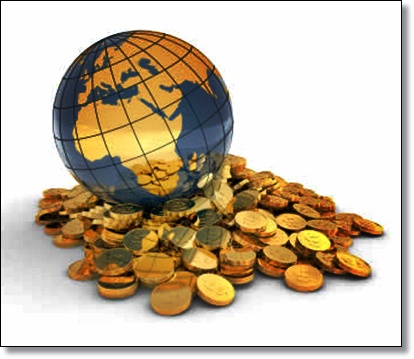Africa: The Current Investment Frontier

 |
I believe that there is a transformation taking place which is global in scale and scope. The transformation is based around a virtuous cycle between the adoption of basic market principles and increased political pressure for improved governance. The economic recipe for transformational growth is almost universally understood in emerging markets today and has proven effective in a wide range of institutional settings. Accordingly, it is impacting a greater portion of the world’s population than at any time in history.
Africa will be as much part of that transformation as anywhere. Parts of Africa will benefit, or not, as much as Asia, Latin America, BRIC or Europe. Any attempt to geographically confine the economic transformation taking place globally today is missing the point. The process is economic. Those regions of Africa which open themselves up to this process will benefit as least as much as anywhere else globally. The winners will be decided by the political commitment to change and by the economics, not the geography.
I see the opportunity in Africa as greater than anywhere else in the world today not because Africa is different, but precisely because it isn’t a special case. The difference with Africa is simply that the scope for catch up and convergence is greater and is likely to happen more rapidly.
Transformation Growth in Africa
Six years ago, when Renaissance Group and our investment banking arm, Renaissance Capital, became actively engaged across African continent the hard data was beginning to confirm that Africa was becoming one of the fastest growing regions in the world and was making steady progress in addressing many of its most challenging macroeconomic and governance problems. One of the biggest opportunities we saw was to produce high quality capital markets research for the world’s major emerging markets investors. By breaking down investors’ deeply held prejudice against Africa we hoped to accelerate their participation in the continent and to build a new business for ourselves in the process.
Today Africa’s economic success, and the success right here in Nigeria, is widely understood amongst global investors. In fact, within the next couple of years I expect that it will become conventional wisdom that Africa is one of the most attractive investment destinations globally.
Detailed analysis by the World Bank, IMF, investment banks and, most recently, McKinsey and Company means that there is now little debate on the speed, breadth and other key dimensions of Africa’s economic renaissance. Briefly summarized, the key facts include the following:
• Economic growth in Africa has averaged 6% over the last decade, greater than that enjoyed by India between 1995 and 2005.
• Today 8 of the 20 fastest growing economies in the world are from Africa.
• Here in Nigeria, we have a case in point. The macroeconomic and political situation in Nigeria will lead to, as our research team recently wrote, another year of 7-8% GDP growth. The recent election cycle has, on balance, been positive, and the market focus will start to shift away from political risk.
• This resurgence across Africa is broadly based – between 2000 and 2008 economic growth accelerated in 27 or Africa’s 30 largest countries. Remarkably, of 43 sub-Saharan countries only Madagascar had negative growth last year in comparison with more than a dozen such economies in the mid-90s. The naysayers’ tired refrain, ‘what about Zimbabwe’, holds little weight today.
• Analysis by McKinsey suggests that natural resources account for only a quarter of Africa’s growth with those sectors that benefit from strong domestic activity accounting for the majority.
• Similarly IMF data show that GDP growth is remarkably similar between African countries with significant resource exports and those without and the IMF has concluded that “natural resource endowments and geography…..have not been decisive factors in explaining the growth takeoff since the mid-90s.”
• In 2009 despite the massive collapse in virtually all commodity prices Africa was the only region of the world not to record a single quarter of negative growth. Just compare the performance that year of two oil-dependent and supposedly hopelessly managed emerging markets: Russia which suffered a 7.5% economic collapse and Nigeria which achieved a stunning 7% growth rate.
• Africa’s macroeconomic performance has improved very significantly – between the 1990s and the 2000s inflation has fallen 64%; government debt by 28% and fiscal deficits by 60%.
• Finally, according to World Bank indicators the majority of African countries have implemented successful microeconomic reforms and those countries implementing the most reforms and greatest trade liberalization have experienced the greatest acceleration in economic growth.
At a more subjective level, I believe that the transformational economic success experienced by most of Asia and parts of Latin America and Eastern Europe has taken the ideological debate out of economic policy formulation in most African countries. The value of fiscal discipline, modest inflation, economic openness and private ownership are no longer in contention.
Private sector agents have equal conviction in the effectiveness of the basic reform recipe because the movie of economic transformation has been seen so many times before around the world. Local bankers from Lagos to Nairobi are totally aware of the boom in financial services achieved in countries as disparate as Chile, Poland and China. They fully believe they now have the opportunity to create the same success at home.
International strategic and financial investors have also seen the economic transformation movie many times before. It is rapidly becoming conventional wisdom that virtually all of the world’s growth is in emerging markets and that Africa is the last great frontier. For once, investors’ herd mentality is working in Africa’s favour. Hardly a week goes by without another global CEO extolling the virtues of the African investment opportunity.
By Stephen Jennings
CEO, Renaissance Capital.
